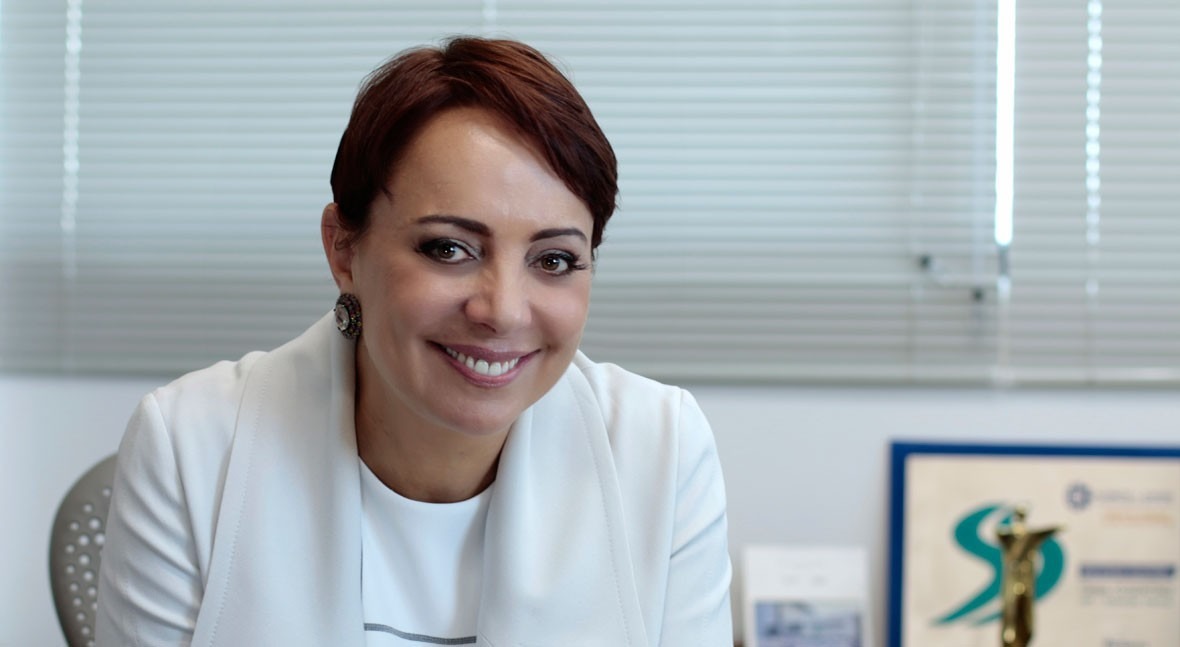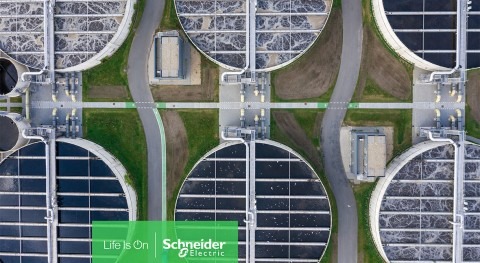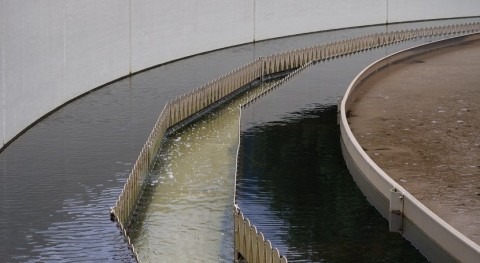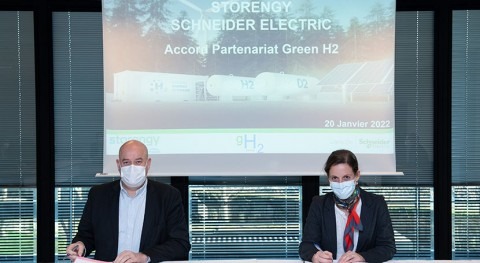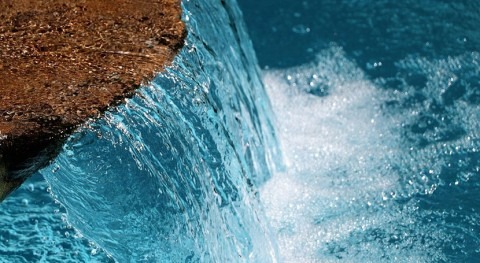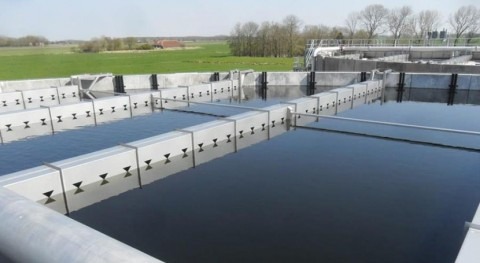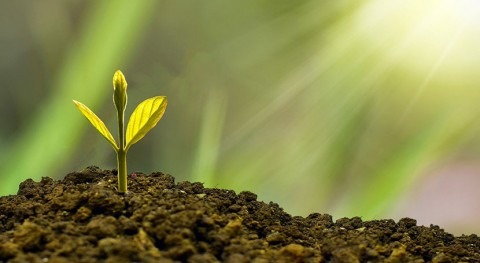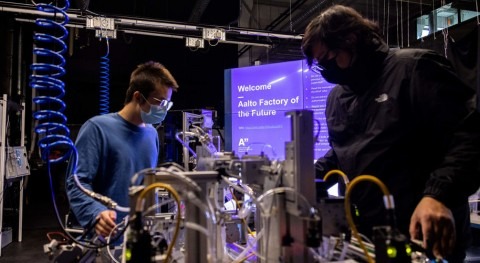For the past 30 years, Tania Cosentino has dedicated her career to the electrical industry. In 2000 she joined Schneider, where today she is the Global Vice President of Customer Satisfaction & Quality.
Her career path includes different markets: residential, industrial, commercial, data centre and energy and infrastructure for smart cities. In addition, Ms Cosentino is globally recognised for her work on sustainability, particularly on issues related to energy efficiency, women empowerment and diversity.
In this interview, we discuss her involvement in water related issues in the region, and we discover the keys to the success of one of the most influential women in the infrastructure sector.
Question - Ms Consentino, first, we would like to know about your responsibilities as Customer Satisfaction & Quality Senior VP at Schneider Electric.
Answer - For the past six years, I have been preparing Schneider Electric to lead the digital transformation in South America. I have also worked in the area of sustainability, particularly on issues related to energy efficiency, access to energy, women empowerment and diversity. My passion for clients, together with the experience and knowledge I have acquired along my career, will help me transform Schneider Electric in a company even more focused on our clients, to provide them the best experience any time they interact with us.
Q - You worked in Latin America for part of your career. What do you think are the main challenges in the region? Specifically, what are the challenges with regards to water?
A - We are still experiencing water scarcity in some areas, such as the north-east of Brazil and some metropolitan areas, as well as a growing demand for capital, due to the lack of sanitation and treatment infrastructure. Furthermore, the lack of public investment and legislation to encourage private investment is an important issue, mainly in Brazil. We need considerable investments to upgrade old facilities, both networks and plants. Another challenge is the loss of knowledge due to the retirement of many experienced workers. And we are also facing stricter environmental regulations, climate change and limited water management in agriculture, the largest water use.
.jpg)
Q - How would you describe the extent of uptake of digital technology for water management in Latin America?
A - In many private companies and in some of the public ones, new technologies are well received and in demand. But for the most part, we find that business still need basic solutions and it is difficult to access financial resources to tackle upgrades.
For the past six years, I have been preparing Schneider Electric to lead the digital transformation in South America
Q - What are the innovation opportunities for Schneider Electric in the region, in particular in the water business?
A - There is a global demand for clean water and reliable sanitation. With EcoStruxure, our safe, open and scalable platform, we have solutions to help the water industry face this challenge in the entire water cycle.
In drinking water treatment plants and waste water treatment plants, our comprehensive approach to process control and energy management allows energy savings of up to 30%, while plants continue to work efficiently, ensuring water treatment and the production of clean drinking water uninterruptedly. With regards to desalination, a growing market particularly in Chile, we reduce risks providing safe, reliable and efficient solutions for cutting edge EPCs. Our exclusive 'smart water' solutions for plants include hardware, software and services for plant management and optimisation, automation and control, complete electrical distribution systems, safety and protection — from safety video cameras and access control to cybersecurity —, and global services.
We also develop strategies and implement smart water networks to improve the efficiency, longevity and reliability of infrastructure, therefore maximising the return on the investment. We offer exclusive 'smart water' solutions to manage leaks and optimise the network, optimise pumping systems, remote metering and automation, electrical distribution, safety and protection — physical security and cybersecurity — and services.
In many private companies and in some of the public ones, new technologies are well received and in demand
Q - You are also a member of UN Women. What is your role in this organisation?
A - Schneider Electric works with UN women in several areas. Since 2015, we are one of the 10 entities part of HeForShe Impact 10x10x10, a group of private companies, universities and governments taking action on gender policy. That same year, more than 22,000 of our male employees signed the online petition and joined the HeForShe movement, the UN Women programme and UN Global Compact initiative that encourages men and boys to act against the inequality experienced by women and girls.
In addition, in 2016, 40 of our national presidents endorsed the Women Empowerment Principles (WEPs) established by UN Women and the Global Compact. WEP signatories commit publicly to make every effort to offer the same opportunities to men and women, so that they can reach their full potential.
Recently, our Brazilian subsidiary received the Silver Award from the local WEP initiative, recognising their good practices and the results obtained in terms of gender equality and women empowerment.
Q - In this regard, what do you think about the role of women in sectors such as the water sector, where men's presence predominates?
A - As in any other sector of the economy, the presence of women is crucial. Companies with a culture of diversity and inclusion are achieving an average revenue increase of 38%, as a result of product and service innovation (BCG Technical University of Munich, 'The mix that matters: innovation through diversity'). Studies show that organisations with a similar number of men and women in their boards of directors and with strong female leadership obtain better results than those without it (MSCI, 'Women on boards: global trends in gender diversity on corporate boards', 2015). Some estimates suggest that the global GDP could increase by USD 5.3 billion in 2025 if gender inequality with regards to participation in the economy decreased by 25% during this period (World Economic Forum).
It is imperative for companies to understand the positive impact that diversity and reducing inequalities has on business. At Schneider Electric, men and women have the same opportunities, the same rights and responsibilities. Studies indicate that when we have groups integrated by people of different genders, backgrounds, experiences and training, innovation is accelerated, we obtain a greater commitment by employees and better financial results.
In 2016, 40 of our national presidents endorsed the Women Empowerment Principles established by UN Women
Q - You are also among the 10 'Sustainable Development Goals Pioneers' recognised by the UN. What is your view of the state of achievement of the SDGs in Latin America?
A - Since 2002 we have worked globally with the UN Global Compact and included their initiatives in our business. This is what we did in 2015 when the UN adopted the 17 Sustainable Development Goals (SDGs) and the 169 targets to achieve by 2030. I am proud to say that Schneider Electric has a positive impact on the 17 SDGs. The SDGs are essential because they guide business activity. I am pleased to work at a company that offers me the possibility of implementing these projects and to have a passionate team that embraces such important causes. I am myself an innovation and sustainability activist. This is my contribution as a senior manager and as a citizen.
.jpg)
Q - With regards to SDG 6 (Clean water and sanitation) in particular, what tools would be most effective to make progress towards this goal?
A - Together with the obvious need to improve and increase the level of efficiency in water treatment and sanitation networks in cities, one of the main actions to implement in this area would be a better, more serious and comprehensive control of water leaks during distribution. Several metropolitan areas in Brazil are facing water scarcity issues and many metropolitan rivers are polluted. Bringing water from distant regions to the main population centres is becoming more and more common. This scenario is very favourable to work on projects to reduce losses, fully aligned with sustainability needs across the world.
In addition, there are still about 800 million people in the world with no access to drinking water, and we still see women and children walking for hours to get water. We have launched a programme in South America called 'Agua del Sol' [Water from the sun], with our programme Access to Energy (A2E). The purpose of it is bringing clean water and energy to remote villages; from there, we can promote the economic development of disadvantaged communities, while we control the emissions of CO2.
Q - Finally, what is your vision of the future of the water sector in Latin America, in this context of constant innovation we are in?
A - We continue to see a great need in terms of improving waste water collection and treatment, water scarcity in many regions of South America, as well as an important need to address these problems in cities.
If we put together all the currently available innovative technologies, surely we can predict great progress in this sector in the coming years, as long as local governments give this issue the importance it deserves.
The main trends in the water and sanitation segment are: recycling/reuse for industrial use, smart water, desalination (mainly in Chile for mining, minerals and metals), projects dealing with performance, both regarding water losses and automation, digitalisation and sustainability.
It is imperative for companies to understand the positive impact that reducing inequalities has on business
Q - Why is sustainability so important for the strategy of water and sanitation companies?
A - In 2050, the world will be a very different place, and we are starting to see some of the potential difficulties we have to deal with. How will we sustain the global population without an appropriate supply of drinking water? Nobody thinks this will be possible if we continue on our current path.
'Business as usual' is no longer an option and we have to adopt measures to provide clean, safe water to the growing global population. To make things worse, water is a finite resource. More than 50% of the surface water in Europe is already below the threshold of safe consumption. And a huge amount of water gets lost every day through leaks and other non revenue water issues. These inefficiencies are contributing to worsening the water situation globally and represent a great opportunity for improvement through the use of technology.
Our main projects in Latin America:
- Siven (metallurgical industry in Venezuela), for Veolia
- Ciudad David (Waste Water Treatment Plant) for Suez, in Panama
- Smart water solution for Copasa, in Brazil
- Aquapolo (PPP between BRK Ambiental and Sabesp), in Brazil
- São Lourenço Transposición (Sabesp), Brazil
- La Pradera (Drinking Water Treatment Plant) for Veolia, Ecuador
- Drinking Water Tanks for Aguas Andinas (Suez), in Chile
- Several projects for AYSA, Argentina
- BRK Ambiental in Pernambuco, Brazil
- Water Treatment Plant and Waste Water Treatment Plant for Nissan and Jaguar/Land Rover in Rio de Janeiro, Brazil
- MT Variable Speed Drives for COGERH in Fortaleza, Brazil


